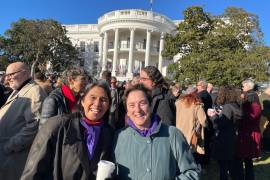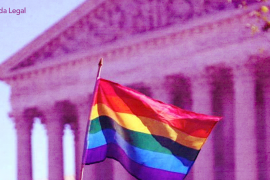
Why Prop 8 is Really and Truly Dead
Blog Search
The argument made by the Prop 8 proponents that Judge Walker's injunction against enforcement of the initiative only applies to the plaintiff couples is totally lacking in merit. To use a “technical” term – it is pure malarkey.
On its face, the injunction explicitly requires that California's Governor and specific other state officials "and all persons under their control or supervision" no longer "apply or enforce Proposition 8." The California Supreme Court previously held that county clerks and registrar/recorders are subject to the control and supervision of these state officials when it comes to the issuance of marriage licenses. Local officials are therefore bound to comply with the injunction by its express terms.
Judge Walker himself also ruled that county officials have no discretion relating to who may marry and that their duties are subject to the supervision of these state officials. This ruling was never successfully appealed and therefore is binding as well.
In addition, the Prop 8 proponents never challenged the scope of the injunction before Judge Walker nor on appeal and they repeatedly told the courts that the injunction would have statewide effect. They therefore have now waived any arguments that the injunction must apply more narrowly.
The Perry case sought and obtained the facial invalidation of Prop 8 because there was nothing unique about the couples who sued that entitled them to prevail and because there are no same-sex couples as to whom application of Prop 8 would be constitutional. In circumstances like this where a law has been held "unconstitutional on its face," the Ninth Circuit has explained that the law's provisions are "not unconstitutional as to [plaintiffs] alone, but as to any to whom they might be applied."
Moreover, precedent allows federal district court judges to issue injunctions benefitting those who were not parties to a case whenever that is necessary to secure full relief to those who sued. The plaintiffs in the Perry case correctly argued that they would not obtain full relief if they were the only ones allowed to marry because such limited relief would perpetuate a stigmatizing two-tier system. If all other same-sex couples in the state continued to be denied the freedom to marry, the Perry plaintiffs (like the 18,000 same-sex couples who married in 2008) would have to continually explain that they were part of an exception to the ongoing marriage ban, which would continue to send the demeaning state message that same-sex couples' relationships are inferior.
Furthermore, having Prop 8 continue to apply to all same-sex couples except the plaintiffs would violate the requirement of the California Constitution that "All laws of a general nature have uniform operation." Indeed, if all local officials were not bound by this decision, what would happen if the plaintiff couples traveled through San Diego or Oakland? Would they no longer have to be treated as married? Such a patchwork of treatment would perpetuate the inequality that the district court correctly ruled violates the U.S. Constitution.
Same-sex couples are celebrating love and marriage across California. It’s time to stop the legal malarkey.
Read the FAQ Marriage for Same-Sex Couples in California.




